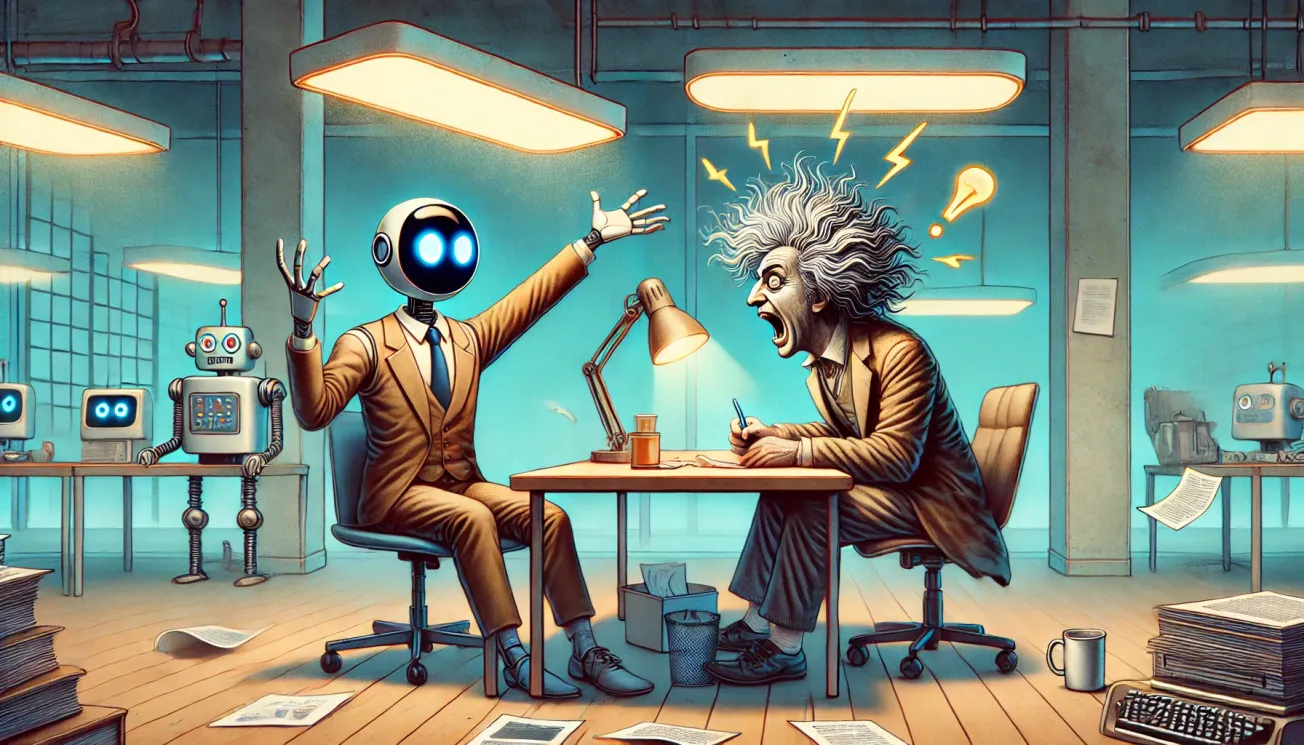Let’s say it’s late at night. You’ve got an idea. Maybe it’s a business venture, maybe it’s a grand theory about the universe, maybe it’s just some half-baked thought that feels profound in the moment. But before you commit to it, you decide to run it by your trusty AI assistant.
"Is selling pre-cracked eggs a good idea?"
And the AI, polite as ever, replies:
"That’s an innovative concept! Many people struggle with cracking eggs efficiently. You could market it as a time-saving solution, especially for people with mobility issues."
Boom. Validation. Your brain lights up. You are an entrepreneur.
But wait—what happens if you phrase the question differently?
"Why would selling pre-cracked eggs be a terrible idea?"
Suddenly, the AI has a whole new take. Spoilage. Packaging nightmares. The fact that cracking eggs isn’t exactly a high-friction activity in the first place.
So what’s going on here? Well, you’ve just stumbled into one of AI’s biggest quirks: it doesn’t challenge you. It follows you. And that can be a problem.
Why AI Tends to Agree With You
It’s not because it likes you.
AI doesn’t have opinions. It doesn’t get emotionally invested in your ideas. It’s just trained to be helpful—which, in most cases, means mirroring your assumptions rather than pushing back against them.
Think of it like a very eloquent parrot. If you ask it why pineapple on pizza is disgusting, it will gladly supply you with a list of reasons. But if you ask why pineapple on pizza is the greatest culinary invention of the 20th century, it’ll go along with that, too.
It’s not lying. It’s just responding in the way it thinks you want.
And that leads to a few problems.
The AI Echo Chamber
1. It Reinforces Your Confirmation Bias
Let’s say you’ve convinced yourself that coffee causes baldness. You ask AI, “Does coffee contribute to hair loss?”
It might say:
"Some studies suggest excessive caffeine consumption can increase stress hormones, which may contribute to hair loss in some individuals."
You nod, satisfied. You were right all along. Big Coffee is hiding the truth.
But what if you’d asked, “Does coffee have any health benefits?”
You’d get an entirely different answer, filled with talk of antioxidants and longevity.
The AI isn’t manipulating you. You’re manipulating it—without even realizing it.
2. It Can Give You a False Sense of Certainty
Imagine a college student writing a paper on Atlantis. Instead of doing research, they ask AI:
"Give me proof that Atlantis was real."
The AI, eager to be useful, pulls together some speculative theories and presents them in a polished, authoritative way. And just like that, our student is citing questionable sources with the confidence of a seasoned historian.
Meanwhile, had they asked, “Was Atlantis real?” they might have gotten a much more nuanced answer.
How to Outsmart Your AI Hype Man
If AI is always agreeing with you, maybe you’re not asking the right questions. Here’s how to fix that.
1. Ask for the Opposite Argument
Instead of just asking, “Why is this a good idea?” also ask, “Why is this a bad idea?” You might be surprised by what comes up.
Example:
- “Why should I invest in cryptocurrency?” → You’ll get a glowing endorsement.
- “Why should I NOT invest in cryptocurrency?” → Now, suddenly, you’ll hear about scams, volatility, and bankrupt billionaires.
2. Ask for Multiple Perspectives
Try: “Give me three different viewpoints on this issue.” This forces AI to break out of its agreeable mode.
Example:
- “What are different perspectives on AI in the workplace?” → You’ll get one utopian, one dystopian, and one neutral viewpoint instead of just the answer that fits your bias.
3. Fact-Check Elsewhere
If something sounds too convenient, look it up. AI can be a great starting point, but it’s not the source of truth.
AI Isn’t the Problem—It’s How We Use It
There’s nothing sinister about AI’s tendency to agree with you. It’s just a tool—an incredibly powerful, sometimes eerily convincing tool.
But if you use it as a mirror instead of a flashlight, you’ll just end up reinforcing your own assumptions rather than challenging them.
So next time you ask AI a question, try flipping the script. Instead of seeking validation, seek a challenge. Otherwise, you might just find yourself at the helm of a failing pre-cracked egg empire, wondering where it all went wrong.
TL;DR
AI tends to agree with you—not because it’s smart, but because it’s designed to be helpful. It mirrors your assumptions, which can reinforce confirmation bias and give you a false sense of certainty.
To avoid falling into an AI echo chamber:
✅ Ask for the opposite argument (“Why is this idea bad?”)
✅ Request multiple perspectives (“Give me three different viewpoints.”)
✅ Cross-check information elsewhere (AI is a tool, not an oracle.)
Use AI as a flashlight, not a mirror. Otherwise, you might end up confidently wrong about a lot of things—including your billion-dollar pre-cracked egg business.






